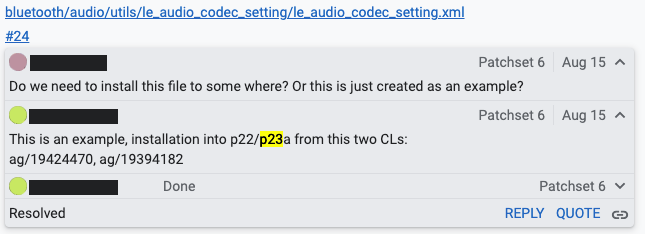It seems Google may have plans to offer “higher quality” support for Bluetooth LE Audio on the Pixel 7, Pixel 7 Pro, and Pixel 7a.
With Android 13, the mobile operating system gained initial support for the recently finalized “Bluetooth LE Audio” standard. The standard actually consists of a handful of major innovations, which may take time for Android to fully support.
For example, Bluetooth LE Audio is set to make the next generation of true wireless earbuds more efficient, as your phone will be able to simultaneously send audio to both buds rather than bridging the audio from one to the other. On a larger scale, there’s also “Auracast” which is meant to allow multiple receivers (speakers, headphones, hearing aids, etc) to play the same audio from a single sender. Not to mention Bluetooth LE is more battery-efficient than Bluetooth Classic.
The most direct improvement is the introduction of the LC3 audio codec, which compresses audio far more efficiently than Bluetooth Classic audio options do. Like any other audio codec, LC3 can be configured to use more or less data, as needed, supposedly even adjusting on-the-fly to compensate for long distance connections or interference.
Of course, for audio to actually be sent and played correctly, both devices — for example, your phone and earbuds — need to support the same codecs at the same quality settings. For instance, while there are headphones today that support other Bluetooth Classic codecs like Qualcomm’s aptX HD, if your Android phone doesn’t support it too, there’s no benefit to you.
In a recent Android code change, Google introduces a way for a phone to have “higher quality” or “higher bandwidth” options than Android 13 includes by default. While Google’s work toward this is already a decent assumption that this would be for the sake of Pixel phones, a discussion between Googlers actually tells us that this is in preparation for the Pixel 7 series and Pixel 7a.
One Googler asks whether a particular XML file — used here to lay out all the many supported Bluetooth LE Audio codec settings — is actually being used by Android or if it’s merely intended as an example. In reply, a second Googler offers links to where the Pixel 7 series and Pixel 7a add their Bluetooth LE Audio settings.

More specifically, the Googler refers to these phones as “p22/p23a.” In this case, “p22” is shorthand for the Pixel phones releasing in fall 2022, the Pixel 7 and Pixel 7 Pro. Similarly, “p23a” stands for Google’s A-series phone releasing in 2023, the presumed Pixel 7a.
As you’d expect, the code for the Pixel 7 and Pixel 7a is not currently available to the public, meaning we can’t yet see how those phones will enhance Android 13’s Bluetooth LE Audio support. The only semblance of a hint that we’re given is in the description that some devices may support “higher quality or higher bandwidth.”
This could mean that the Pixel 7 series and Pixel 7a would have higher quality audio — on supported Bluetooth LE Audio devices — than the Pixel 6 can manage. The fact that those two devices are mentioned together suggests that this higher-quality support for Bluetooth LE Audio is part of the second-generation Google Tensor chip.
For now, though, the full extent of Bluetooth LE Audio support on the Pixel 7 isn’t something that will matter much to most. The standard is so new that there aren’t really any products yet that offer full Bluetooth LE Audio support. The Galaxy Buds 2 Pro are set to possibly be the first mainstream earbuds to offer it, via an update coming “later this year.”
Even Google’s own Pixel Buds Pro — despite rumors suggesting it would launch with Bluetooth LE Audio capabilities — do not currently support the new standard. It’s possible that the necessary support could arrive later this year, as the first feature drop is already set to bring “spatial audio” to the earbuds among other features.
More on Pixel 7:
- Source: Here’s how Google plans to price the Pixel Watch and launch with Pixel 7
- Should you buy a new phone now, or wait for the Pixel 7?
- Sources: Google considers face unlock that relies on Pixel 6 fingerprint sensor, Pixel 7 work ongoing
Author: Kyle Bradshaw
Source: 9TO5Google



